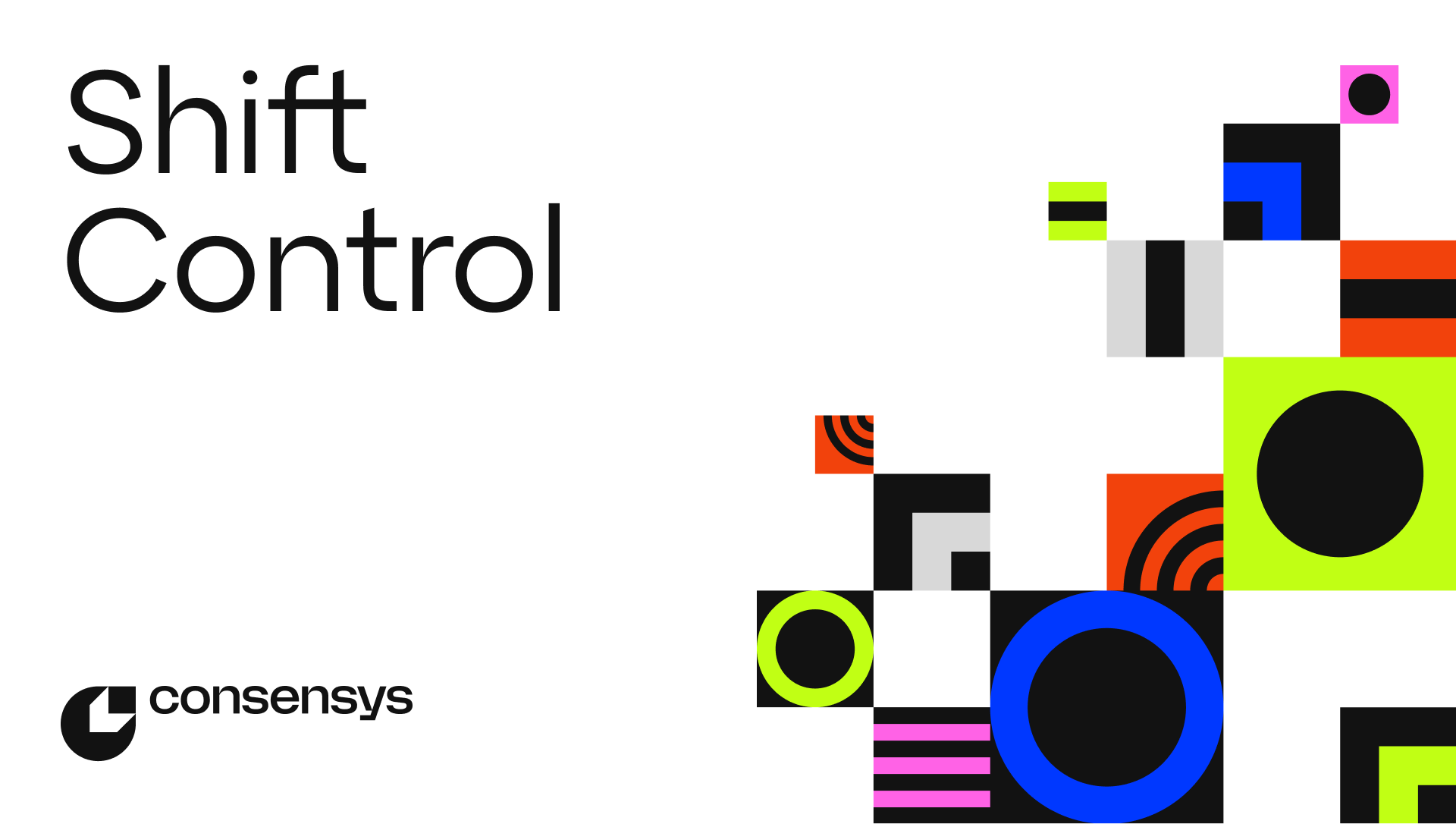Consensys, a leading blockchain and Web3 software technology company, has been going through a rebranding process recently starting with a 3D logo change. Consensys was founded by one of the creators of Ethereum, Joe Lubin. The idea behind the creation of Ethereum was the desire to expand the capabilities of blockchain technology—which is just a ledger—beyond simple financial transactions. Based on the knowledge of how blockchain technology works the creators realised that by imputing logic (a programming language now called Solidity) into the blockchain, they can go beyond just updating a ledger to creating a base layer that can support the development of decentralised applications (dApps) and smart contracts. Post Ethereum, Joe Lubin decided to build the ecosystem by directly investing and building a range of different projects on the Ethereum blockchain.
Consensys started as an incubator for blockchain startups but has now become a unified software company that provides a suite of Ethereum products for builders. Two core projects that have come from this are Infura; which is an endpoint that helps users send transactions to the blockchain and MetaMask; which is a crypto wallet and the gateway app many people use to interact with the blockchain.
The core of this rebrand is to emphasise the focus on builders. As the world changes and blockchain products rise, fall, and become embedded in daily human life, Consensys is leading the charge in this change by creating products and services that encourage the builders of this new world to keep innovating. One way they’re doing this is with the ongoing Not Another Virtual Hackathon (NAVH) dedicated to Web3 developers, NFT artists, students, community builders, product specialists, and all innovators. I had a sit down with Samuel Akpan, Strategic partnerships and PR lead at Consensys Nigeria, to discuss what this rebrand means and this exciting ongoing hackathon.
What inspired this rebrand of Consensys?
We realised that we hadn’t done a rebranding for a very long time. Consensys has been seen as this Ethereum incubator and that is not really the case anymore. If you look at the trajectory of crypto also, you’ll see that it has come a long way from the very early days of Bitcoin and Ethereum. One thing that led to that is the empowerment of the builder and we at Consensys feel that was our value. So one way that we felt we could translate our values into our identity, based on this commitment to building, was to rebrand. We want to further this empowerment of the builders similarly to how Nike treats everyone as an athlete—every single person can be an athlete, it doesn’t matter what size you are. At Consensys, our view and our vision of the world is anyone and everyone is a builder. Since we’ve never done a rebranding since founding, this rebrand gave us the opportunity to align ourselves more with our values and that is directly articulated into our mission, which is to inspire and empower the builder in everyone.
So what you’re saying is that with this rebrand nothing specific has changed but rather you want to be more visible to your community?
Exactly. So like I said earlier, we see a Web3 paradigm shift where everyone and anyone is building and is capable of being a builder. This rebrand is a nod to say, “Hey, we see you, we recognise you, and we are aligned. We buy into that paradigm shift that we see, we want to be part of that, we want to encourage you to build, and we have the product suite of tools that can enable you to build” So we are signalling to builders to let them know that Consensys is the one-stop-shop that you need to get started with building in crypto. Whether you are a user, a developer, an organisation, or a country, everything and anything you need is at Consensys. We are encouraging you to build similarly to how Nike encourages any and everyone to run.
Speaking of Web3, what would you say is the next phase or the future for Web3 and blockchain technology now that global interests and use for its most popular products, cryptocurrencies and NFTs, has waned and some people think of these as failed products?
I take a different view. I do not care about the commentary that assumes that prices are the best way to define the success or failure of an ecosystem. If you look at the developer activity in crypto, there hasn’t been any impact from any of these events from 2022. I think developers and people who are building apps and trying to get the next billion users in crypto are naturally built and ready for bear markets. If you look at activities on chain and if you look at the number of people that are transacting and engaging in cryptocurrency activities—this can be either buying and selling of tokens, buying and trading of NFTs, or deploying smart contracts on different blockchains—you will see that we have a very strong and healthy activity regardless of the ups and downs or the price movements. If you also look at the number of blockchains that have been deployed, in 2023 alone we have had a number of ZK layer-2 rollups that have gone live despite what may be the popular narrative about crypto being dead. I think what has just happened is that a lot of the noise has been drained out of the system but when you look beneath the surface, the demand is still there. And so, I do not share that view at all.
Let’s talk about the ongoing hackathon. We’ve seen a lot of virtual hackathons so what do you want Nigerians to know about Not Another Virtual Hackathon?
The most important thing that I really want is for Nigerians to apply. We have technical challenges for a lot of our different products, from Linear to MetaMask, to Infura, to the MetaMask SDK. There are also lots of prizes from $10,000 up to a $37,500 pool. It is a global initiative, so it’s not just meant for people in North America, or Asia. The most important thing is to encourage builders, whether you are a developer or whether you’re just looking to create a course on teaching people how to do things in crypto, you can do anything that you think is possible, just visit the website and get in it. Web3 is an open ecosystem, you don’t need to be KYCed and you don’t need to prove that you are from x country or x personality to participate, it’s open to everyone. My message is to encourage as many Nigerians as possible to just apply and you never know what could happen from there.
What are you excited about concerning this hackathon? What are you hopeful that this hackathon will do for your builders and the Web3 ecosystem?
There are two things that I hope will happen. The first is that I hope we get a successful story similar to MetaMask in 2016, which actually started as a hackathon. I hope we get something similar that can onboard the next hundred to one billion users in crypto from this. A second thing that I’m hopeful for is that an African, preferably Nigerian, is part of whatever success stories come out of the hackathon.
About Samuel Akpan
Samuel is a PR & marketing maven with seven years of experience building brands, leading communications and building partnerships in the Fast Moving Consumer Goods, entertainment, and luxury goods industry across sub-Saharan Africa, The US, and EMEA regions. He is bullish on the promise of Web3 and has working knowledge on many aspects of the Web3 space from DeFi to MEV.
He currently works in the PR and communications team at Consensys managing a portfolio of Consensys products including MetaMask, the world’s leading self-custodial Web3 wallet with over 30 Million Monthly Active Users.
Samuel recently managed the Champagnes portfolio at Louis Vuitton Moet Hennessy(LVMH) in Nigeria, where he secured over 20+ local, regional and international coverage for the launch of the Veuve Clicquot Bold Woman Initiative, achieving record-breaking metrics on the campaign—reaching over 18 million people within Nigeria, + 890,000 engagements and 40 million impressions.


















